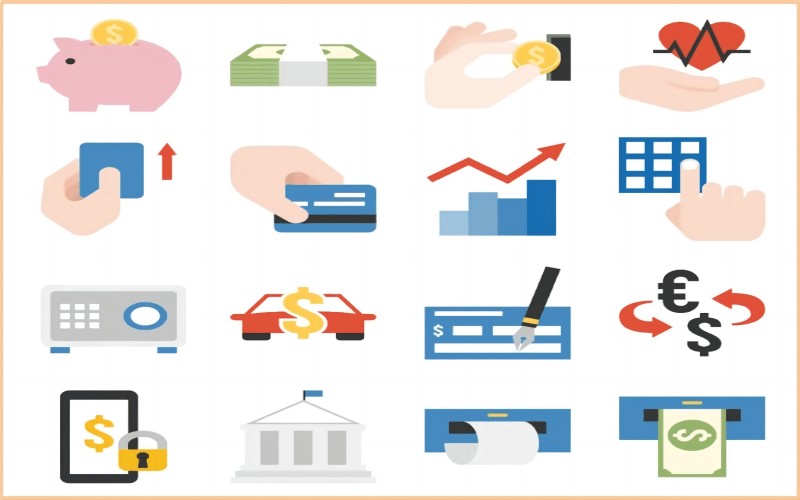A financial product is a commodity(generally in the frame of a deal) offered to customers and companies or other associations(communities or sovereigns) by economic organizations such as insurance corporations, banks, brokering firms, customer finance institutions, investment businesses, all of which include the financial assistance industry.
If you work abroad, you might be required to handle different monetary products and services in foreign countries. Whether searching for a bank account, a loan, a credit card, an investment, or insurance, you must compare your choices carefully and make expert decisions.
Here are a few of the best ways to compare financial products and benefits in different situations.
Best Financial Products You Cannot Afford To Miss

Financial organizations suggest numerous sorts of products and benefits. Check if it satisfies your financial needs before getting a fresh product or benefit.
View the below list before opting for any option:
- Why you need it.
- The benefits it gives you.
- Consider interest rates and fees.
- Think carefully about the risk factors.
Explore and compare financial product examples and benefits that financial organizations propose. Make sure you grasp the requirements and settings. This helps you determine which products or benefits best satisfy your requirements.
Credit Cards
A credit card may be an alternative for settling your daily dealings. You must only accomplish it if you spend back your credit by the scheduled date. Credit cards permit you to repay for stuff and services on a card. Numerous credit cards let you gain bonuses or welcome other benefits.
You may make use of a credit card
- To pay your bills
- To buy goods in-store or online
- To organize automated bill expenditures, the same as your cell phone or subscriptions
- To place a grip on a purchase you desire to make, for instance, when you go to a resort
- To obtain money in advance from a unit of bank or at an ATM, generally at a greater interest rate
Your credit limit is the highest payment you may utilize on your credit card. When you use your credit card to make investments, your leftover available credit declines. When you repay it, that credit turns functional again. This is known as revolving credit.
Checking Accounts

To compare financial products online, the second that comes to mind is a checking account that provides an effortless approach to deposited funds. Contrary to other kinds of bank accounts(containing savings), checking accounts usually enable unrestricted withdraws and deposits, making them a fantastic option to mask everyday spending.
In substitute for this adaptability, checking accounts tend to repay low-interest charges (if they settle interest) in contrast to savings accounts, certificates of deposit (CDs), and many other accounts that enable you to increase your money.
Therefore, employing your account only for the funds you’ll need to get for routine purchases and monthly payments is a great idea. Anything else should move into accounts that provide greater profit potential.
Personal Loan
A personal loan (a customer loan) explains any condition in which a person leases cash for unusual needs involving making investments in a business.
Common elements of all personal loans:
- Prove of the debt (promising note)
- An amount loaned (principal amount)
- The fee of borrowing (interest rate)
When the compensation conditions of a credit are met, the commitment note is retreated. If loan installments are not approved, the moneylender can utilize the legitimate system to regain his money.
HELOC
A home equity line of credit, also known as HELOC, is a type of second mortgage that provides easy access to money based on the worth of your home. You borrow for your equity, that is, the residence’s worth minus the quantity you are in debt on the primary mortgage. You can typically take up to 85% of equity. However, this differs with lenders.
You can withdraw from a house equity line of credit and refund all or a certain amount of it monthly as a credit card. Compared to a credit card, HELOCs are not planned for small expenses. When you’re searching around for a loan, getting it from the equity in your house will often gain you the finest rate.
Insurance

Insurance, one of the major classes of financial products, is an agreement between you and an insurance firm to shelter you and your dear ones from monetary loss due to a sudden event, like a mishap, sickness, natural calamity, or other accidental conditions. Medicinal, dental, or vision security can also keep you or your family safe and sound by compensating and occasionally screening the expense of regular care.
The insurance agreement itself is known as a policy. The policy sketches which one or what will be compensated under the compact, the situation for which compensation will be released by the insurance firm, who will accept the settlement money, and how much money they will get.
Mortgages
A house mortgage is a credit given by a bank, loan company, or other finance foundation to buy a house—a fundamental, a secondary, or a finance habitation compared to a commercial or industrial land section. In a home loan or mortgage, the landholder (the borrower) assigns the title to the moneylender on the terms that the title will be transferred to the holder when the last loan installment has been done and other mortgage conditions have been met.
All the items mentioned above are major classes of financial products that can be used. Your choice should depend on your requirements and conditions. A home mortgage is the most common type of loan and one of the most suggested. Since it is, a guaranteed loan—an investment(the residence) that supports the loan home mortgages reach smaller interest rates than nearly any other loan an individual customer can discover.
Conclusion
Monetary organizations try to generate the best financial products by filling essential evidence gaps and demanding financial organizations to deliver complete data about all accessible account options. Our effort to compare financial products can help people to make brief and perfect decisions about their financial needs and attain financial comprehension by ensuring clarity from financial organizations.




